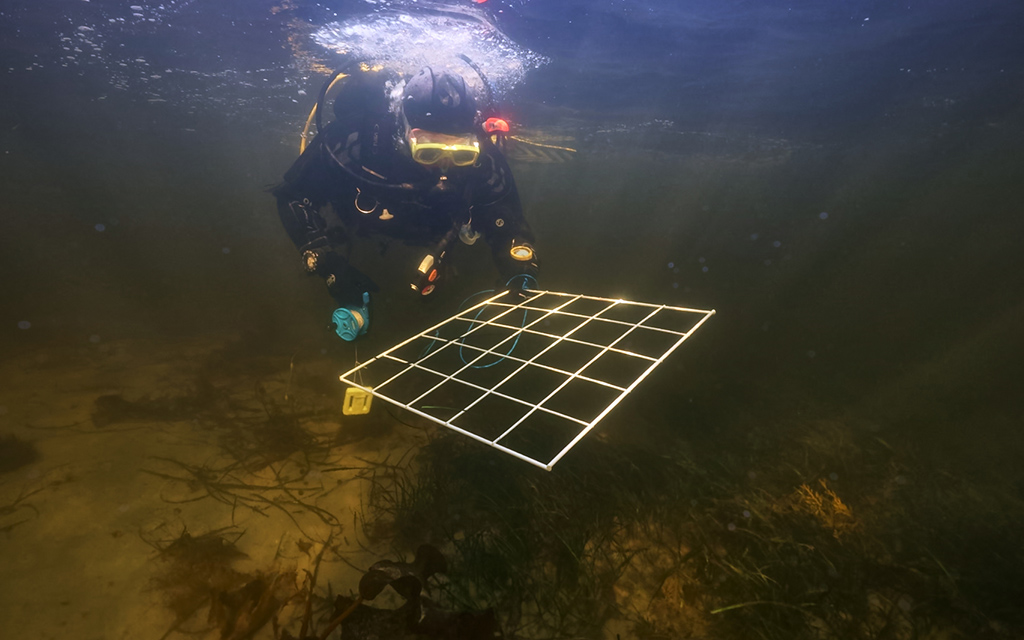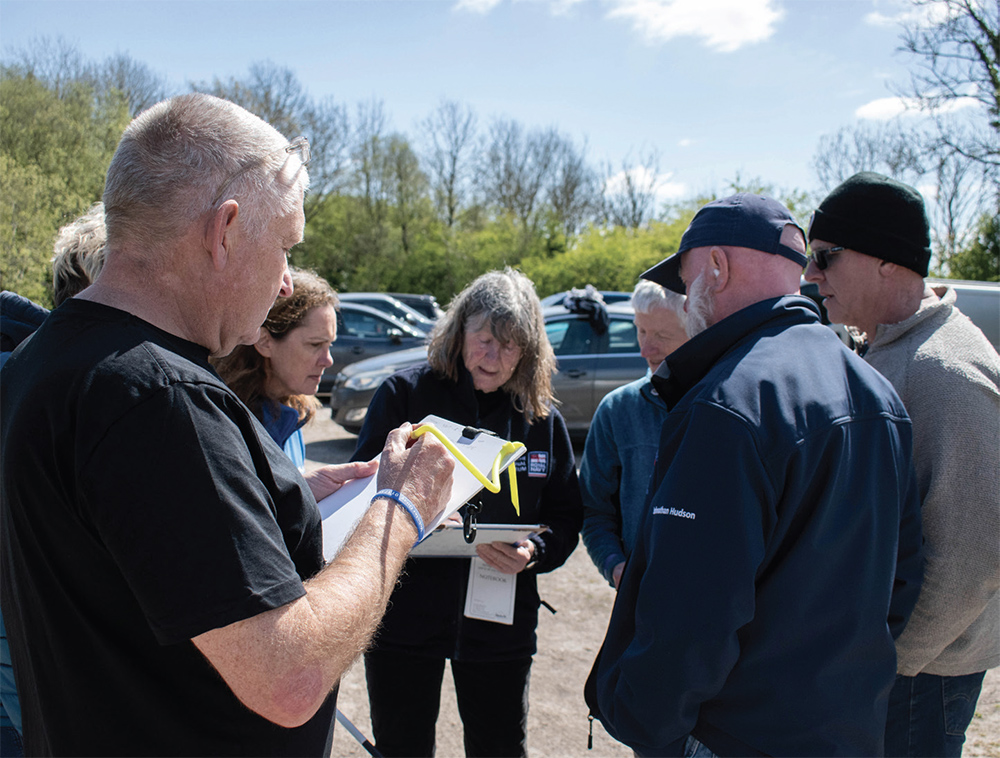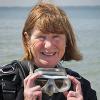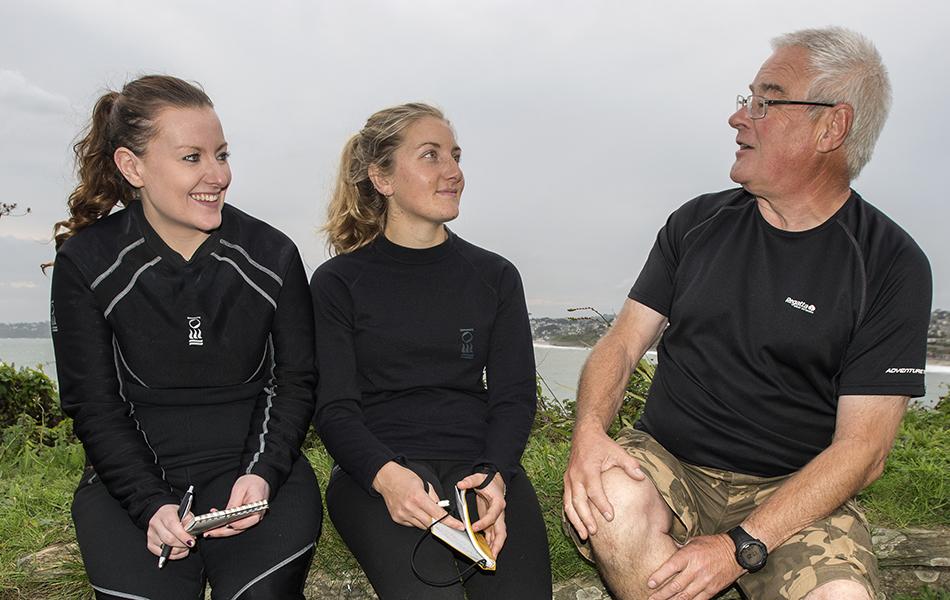
Jane Maddocks explains how three BSAC courses serve as springboards to a higher form of diving, developing skills to record the marine world.
Learning to dive is energy intensive. Continuing to dive probably means more equipment, time and energy. But have you ever wondered why you are doing it? For some of us there could be that question - why am I doing this?
There is possibly a stage that divers reach where just going diving is not enough. Diving becomes a skillset that allows you to travel to something more exciting. Commercial divers use it as travel to work, others use it as travel to wreck exploration, or photo opportunity, or scenic wow factor.
For some there is the recognition that we need to survey and record what changes we see as climate change makes itself felt in species movement, increased water pollution and more rapid wreck degradation.
So, what does survey mean in this context, and how do BSAC divers go about it?
Divers are lucky, because there are a number of opportunities to get up close and active, recording a variety of underwater issues. These range from BSAC courses that can be taught in the branch or centre to specialist courses run by other organisations enhancing our skillset and contributing to national databases. They also contribute to the way we dive and see things – so win win.
divers reach [a stage] where just going diving is not enough. Diving becomes a skillset that allows you to travel to something more exciting
BSAC has some excellent introductory courses, for example: Marine Life Appreciation, Wreck Appreciation, and the new Underwater Surveyor Course.
Marine Life Appreciation introduces you to the diversity of marine life, an introduction on how we classify and name species, and a fabulous section of images on different species you can see underwater. It finishes with stuff on eco-friendly diving, how you can get involved and what recording schemes are waiting for your input.
It is NOT a marine creature ID course. It IS a springboard for other projects, as well as making your diving more fun. It can be taught by an Open Water Instructor (OWI) or a Theory Instructor for the theory and a Practical Instructor for the practical.
For those who prefer wrecks, the Wreck Appreciation Course is a good introduction. It gives basic background on how to find information and locate a wreck, wreck diving equipment and techniques and includes some information about wrecks and marine life, wreck law and ship construction; handy for navigating a wreck if you get bow/stern confusion.
There are then dry practical lessons on site recording and use of distance lines and tapes, before the best bit of getting into the water and having a go on a real wreck over two ‘dives with a purpose.’
Fantastic fun. Any OWI in your branch can teach it, as can centres. Finishing off with drawing up a site is always interesting. You learn to appreciate modern small video cameras! You will also be ace at running out measuring tapes, really looking at the wreck, and making sure you have written down everything you are going to do on your board to offset the effects of water-soluble IQ!

Finally, Underwater Surveyor. This is a new course, a collaboration between Seawilding and BSAC. It’s a springboard course for divers and snorkellers covering a number of survey methods.
You do transects (laying out a line or tape to a specific length to use as a reference for recording material) and use quadrats, do presence and absence surveys, and face the challenge of understanding what random really means. There is a very thorough eLearning pack that takes you through all the different techniques before you do the practical requirement: two dives, one of which must involve a transect.
Finally, if your dive area is over seagrass or oysters, the data entry form at the end will allow you to input data for the BSAC projects. There is information about other portals to submit what you see to organisations who can use it.
Next month I hope to talk about how you can take this further, with uprating your skills and qualifications with organisations such as Seasearch, the Nautical Archaeology Society and the Seahorse Trust.
Article ‘A different sort of travel’ by Jane Maddocks first published in SCUBA magazine, Issue 147 July/August 2024.

 Author: Jane Maddocks | Posted 14 Aug 2024
Author: Jane Maddocks | Posted 14 Aug 2024



